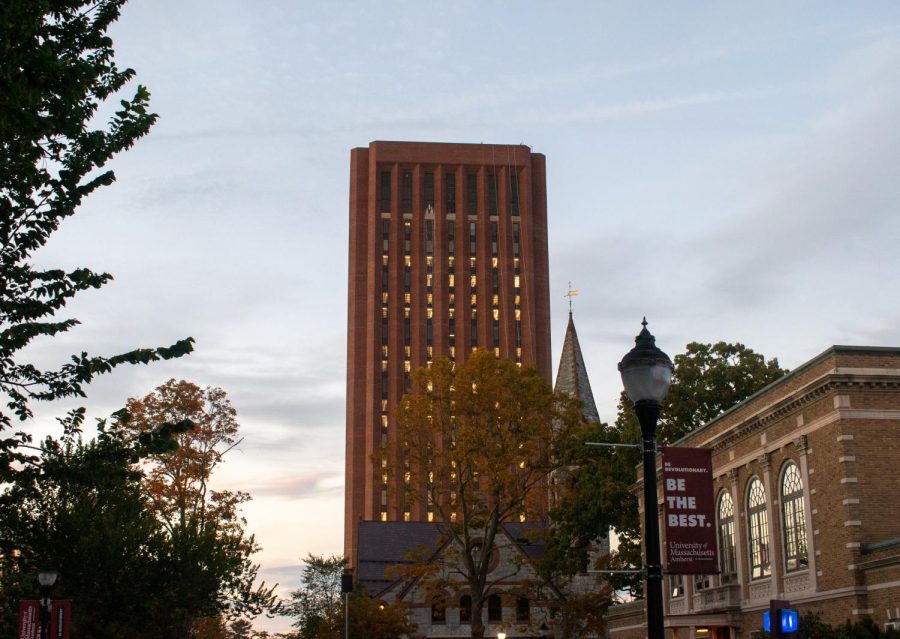About a year after the Jan. 6 insurrection, a University of Massachusetts National Poll found that Republicans and Democrats seem to be living in two opposed realities.
The survey, conducted in December of last year, proved this and further revealed just how deep the partisan divide goes.
“The story of American politics is a story of division,” Tatishe Nteta, director of the UMass poll and associate professor of political science, said. In almost every issue, “you see two diametrically opposed views,” he said.
The poll explored various topics including immigration, education, the legitimacy of Biden’s presidency and views regarding the insurrection. “We think understanding public opinion is important,” Alexander Theodoridis, associate professor of political science, said.
“We wanted to really take the pulse of the country,” Theodoridis said. “So we wanted to look at some key things that are really prominent in political discourse today.”
A major finding of the survey exposed that 46 percent of Republicans believe that the 2020 presidential election was illegitimate, but 83 percent of Democrats and 46 percent of overall respondents do trust its legitimacy. Numbers that are this divided, Theodoridis said, are astonishing when considering that no evidence has been found to support the claim that the election was false.
“That’s pretty sobering,” Jesse Rhodes, a professor of political science said.
The survey numbers also supported the idea that there is a close link between party identification and attitudes towards racial disparities.
“We’ve seen real sorting on the basis of racial attitudes,” Rhodes said.
The poll found that 53 percent of Americans believe in the existence and impact of white privilege, but only 19 percent of Republicans believe this.
Rhodes explained that this phenomenon has been gradually happening since the 1960s and the Civil Rights Movement but has really intensified during the presidency of Donald Trump.
Members who are more conservative in their views feel threatened by the Democratic shifts happening.
“How we think about who is American is going to fundamentally shift, and that also means a shift in power dynamics,” Nteta said.
“Individuals can go as far as they can on the basis of hard work and personal effort and discipline and so forth,” Rhodes said. “What goes along with that is the resistance to the idea that there are systemic factors particularly on the basis of race or gender or ethnicity that can structurally hold groups of people back.”
The core ideas that shape American conservatism are being threatened, and therefore people who identify with this ideology clung to Trump because he validated their concerns.
“If political elites say something it opens the floodgates to allow those views, which may not necessarily be held by the majority of folks to be part-in-parcel of public rhetoric,” Nteta said.
The numbers in this survey show that discussions about immigration, white privilege and teaching Critical Race Theory goes deeper than debate over the topics themselves. “In this point in time,” Nteta said, “it’s really a symbolic debate over what America is, what it’s becoming and how we should look at our past.”
The poll also made an interesting discovery in relation to education and the issue of tracking within public schools.
The question in the poll reads, “Do you favor or oppose public school separating more advanced and less advanced students?” Numbers on almost every other question in the poll were pretty divided amongst political parties. However, for this question, there seemed to be an overall consensus.
Forty-seven percent of Democrats favor or strongly favor tracking, as well as 57 percent of Republicans and 51 percent of all respondents.
“It does seem that a lot of Americans favor the practice of tracking, even if that does produce larger racial divides,” Theodoridis said.
The practice of tracking within public schools is an early contributor to a lot of economic and racial disparity.
“The level of support for tracking, even when we talked about the racial inequities result, demonstrates that maybe this increase in commitment to racial equality and racial reconciliation may just be symbolic and not actual,” Nteta said.
“It’s easy to say you’re supportive, it’s much more difficult to demonstrate your support in a real fashion,” he added.
Grace Lee can be reached at [email protected].




















